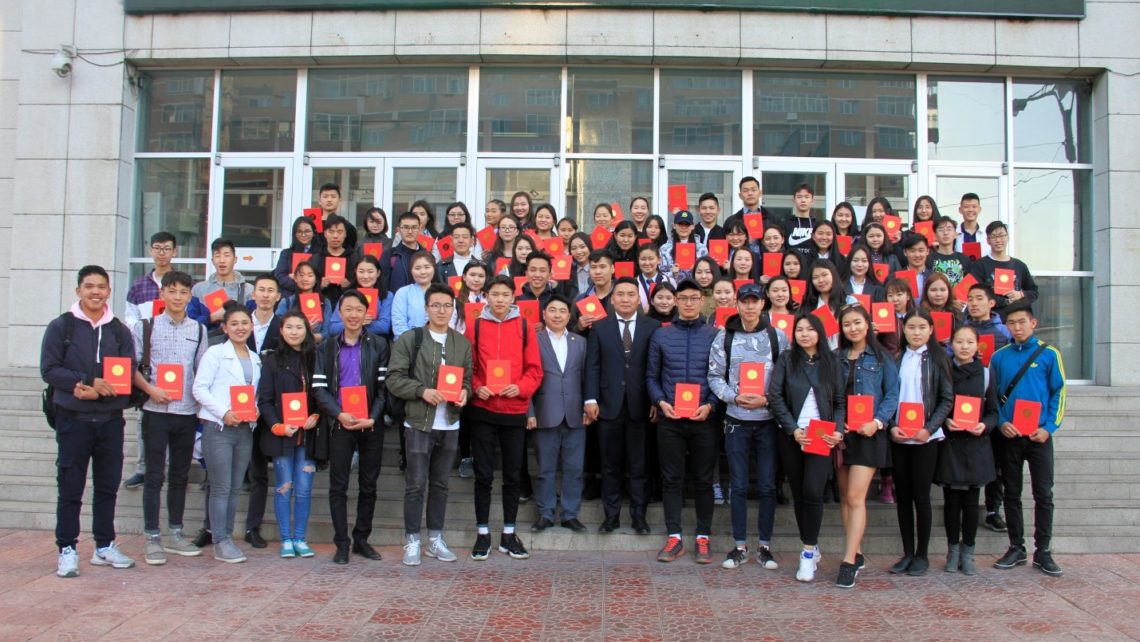Context: A total of 40,000 students graduated from secondary schools in Mongolia following the 2016 – 2017 academic year. The Mongolia Institute for Education, an educational research centre, conducted a survey for the Provision of Vocational Orientation for Senior Secondary School Students Project, revealing that 82 per cent of students felt they needed vocational orientation training and information. Despite the labour market imbalance, growing unemployment and national poverty rates, students often hold themselves personally responsible for failing to secure a chosen profession. It is for this reason that information on the working environment and career options are essential for students. According to preliminary estimates from the National Statistical Office in 2016, 57 per cent of those registered unemployed are young people, aged 15-34 years, totaling 19,650 youth. Of these youth, 45 per cent have a full secondary education and 30 per cent have attained higher education, while 7 per cent of unemployed youth received only a vocational education.
Implementation of programme/initiative: The aims of the “Future Owners” Campaign for Youth to Assist with Selection of Career Choices are:
1.To provide students with the skills to choose their future profession
2.To provide methodological support for students’ career choices
3.To provide information on crime prevention
4.To provide life skills training for senior high school students
Main challenges: The main challenges faced by the programme include an unsuitable timetable that does not allow for individual counselling at the participating schools. Project leaders also recognize a need for better training of vocational orientation consultants so as to more effectively assist the students. A lack of national specialists for career guidance has also been noted.
Results achieved: A total of 17,923 graduate students from 132 general secondary schools participated in the Campaign, 140 of whom engaged in life skills training with the programme. Consultants from the “Career Guidance” project gave 2,300 students personal consultations, resulting in students identifying their individual career paths and ascertaining ways in which to progress towards attaining their professional goals.
Moving forward: For this project to have greater impact, career guidance clubs should be established in secondary schools and career guidance campaigns should begin in November to give students more time to derive benefit rather than later in the academic year. It is also clear that vocational consultants and national trainers need more time to prepare for individual meetings in order to provide thorough and comprehensive professional advice.
Replicability: The Campaign has improved the skill sets of many graduates via the provided trainings and has helped many secure their chosen profession. The core issue that has contributed to the success of this initiative, and can act as a lesson for other programmes, involves a good working relationship between the implementing agency and local communities. Countries looking to replicate this approach should introduce the guidance campaigns early in the academic year so as to effectively integrate them into the academic curriculum and to attain the best results.
References
Acknowledgements:
This good practice was kindly edited by Ms. Elizabeth Linklater.
Project Details
Date: June 6, 2018
